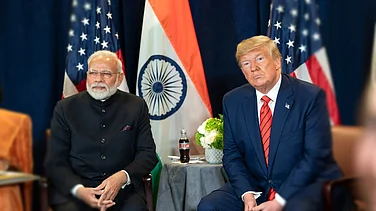In an effort to combat terror financing and money laundering, the global Financial Action Task Force (FATF) is planning to tighten disclosure requirements, particularly for cross-border transactions. This move is expected to increase costs for Indian credit card companies, payment aggregators and fintech firms.
It aims to do so by enforcing a new set of norms that will provide investigative agencies with "real-time information" on the senders and receivers of funds through these channels, according to a senior finance ministry official who requested anonymity.
Formed in 1989, the FATF comprises 37 member countries, including India, along with two regional bodies—the Gulf Cooperation Council (GCC) and the European Commission.
In this case, the primary resistance from the industry stems from the fact that complying with these new regulations would necessitate software upgrades, leading to higher compliance costs. The government, however, will support companies during the transition phase. "If the standard gets adopted, the industry will have a transition time," says the official.
The Reserve Bank of India (RBI) is also of the view that more transparency needs to be there in such cross-border transactions, the official added.
An international consultative forum on the FATF platform is scheduled to be held in Mumbai in April next year to discuss the matter. Along with Indian players and regulators, representatives from the private sector and regulators from other member countries will also participate in the meeting. Sources say that India will make sure that no change happens without its voice being heard.
The FATF’s fourth round of Mutual Evaluation Report (MER) for India took place in November 2023, with the final report scheduled for release on September 19. According to preliminary findings, India, unlike many large economies, has been placed in the “regular follow-up” category, the highest rating given by the global watchdog. This distinction is shared by only three other G20 nations: the UK, France and Italy.
India’s achievement of this rating was supported by its effective implementation of FATF standards, a robust legal system and increased transparency, as per sources. Under the 40 parameters assessed by the FATF, India received the highest rating in 37.
During the FATF plenary in Singapore from June 26-28, the FATF commended India for its high level of technical compliance with anti-money laundering (AML) and counter-terrorist financing (CTF) standards. The FATF acknowledged that India's efforts are yielding positive results.
However, the watchdog noted that India needs to address delays in concluding prosecutions related to money laundering and terrorist financing. Additionally, it emphasised the need for stronger supervision and implementation of preventive measures in certain non-financial sectors, including real estate, gems and jewellery, casinos and the professions of chartered accountants and company secretaries.
































